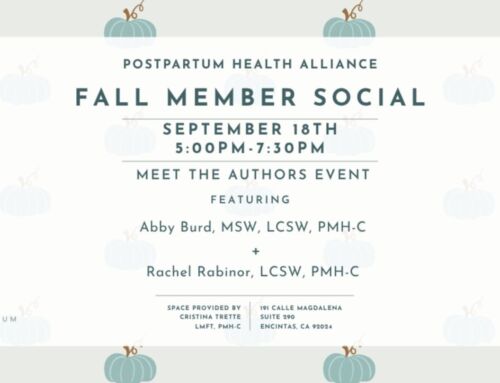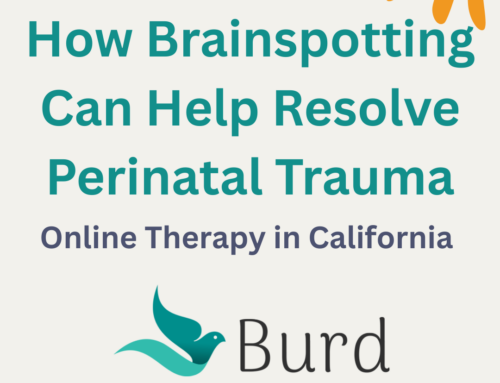Forbes recently asked me what new moms, like Meghan Markle, can expect in the fourth trimester. Other experts, like Harvey Karp, also shared about the physical and emotional changes. I was happy for the opportunity to discuss the social, emotional and mental changes that await many new parents. You can read the excellent article on Forbes.com and see more of our conversation below.

How does your body and brain change after childbirth? In your professional opinion, what are the postpartum changes no one tells new moms about?
Oh, wow, what doesn’t change? Pregnancy is one of the most volatile times for a woman’s body. We have massive changes in every system of our body, from our skin to our hormones to our blood. In addition, our identity, schedules, roles, relationships, and self-perceptions change. In my professional opinion, no one is adequately preparing new moms for postpartum mental health changes. Depression and anxiety are the number one complication of childbirth. As many as one in five women will experience a mood or anxiety disorder during pregnancy or postpartum. Even those of us that do not meet criteria for clinical postpartum depression are hit like a ton of bricks.
What mental health and wellness tips/strategies would you recommend to new mothers to help them better adjust to life with a newborn?
I love that you are starting this conversation. Just raising awareness around Perinatal Mood and Anxiety Disorders (or PMADs as we call them) is a fabulous start. When I was pregnant with my first child, no one warned me at all for how hard the postpartum stage would be. We place a lot of emphasis on nesting and setting up a nursery. Baby shower gifts focus on cute clothes and gear for the child. I would love to see more women register for support for themselves. In the past, I have had a group of friends pull their money together to pay for counseling for a friend. Why not register for a therapist?
In the United States, our entire culture is built around nuclear families isolated in their own homes. This is the worst possible set up for new parents. Every traditional society has a practice of nurturing the new parents for 40 days, 6 weeks, 2 months, etc. When the extended family and community support the new parents, they are free to bond and care for the newborn. In an ideal world, both parents would not have to work, or leave the home for other responsibilities. If that is not realistic for you, you are in good company. Start brainstorming the next best thing. How can you mobilize a support network?
What are some of the most common myths about postpartum depression that people should stop believing?
I would love for people to let go of the belief that they should do everything themselves. Stop believing that if you were “strong enough” you wouldn’t need therapy. Successful executives and CEOs know when to outsource and bring in consultants. Why not do the same for your mental and emotional health?
I think thankfully people are now understanding that postpartum depression and anxiety are not at all the same as postpartum psychosis. However, some women are still afraid to seek help out of stigma. It is not at all uncommon for women to have scary, intrusive thoughts. They may have worries or fears of harm coming to the baby. But they are afraid if they mention postpartum sadness or scary thoughts, others will confuse it with the rare postpartum psychosis (around 1 in 1000) that is associated with infanticide. They fear speaking up about scary thoughts will mark them a bad mother. The fact that they are having worries actually means they are wonderful moms.
What’s your advice for new moms struggling with postpartum anxiety/depression?
Get help sooner. Don’t wait until you can’t stand it. It doesn’t matter if you don’t meet the diagnostic criteria for a full-blown depressive episode. If you are going through a transition (and I’m sure you are, whether it’s your first child or your fourth), then you would benefit from having a safe and confidential place to work through your feelings. A good perinatal psychotherapist will also help you come up with practical strategies for building your support network, managing interpersonal conflict, and navigating role transitions. In fact, you don’t need to wait until you have symptoms! I like to work with women when they are pregnant or trying to conceive. We come up with a personalized plan to prevent postpartum depression and anxiety.
You can find a perinatal mental health specialist in your area through Postpartum Support International. Women most at risk for developing a postpartum mood or anxiety disorder include those that have had a previous episode of depression or anxiety, those that have had a traumatic birth or NICU experience, and those with inadequate social support. I’m excited to be launching an online course for preventing postpartum depression. While it is not a substitute for psychotherapy, Preventing Postpartum Depression (preventppd.com) provides education and can guide you in creating a personal plan for mental health throughout pregnancy, postpartum and parenting.
Bio
Psychotherapist, Abby Burd, LCSW, specializes in perinatal mental health in her private practice in San Diego, CA. Abby teaches women worldwide how to prevent postpartum depression through her online mental health classes at Preventing Postpartum Depression (currently enrolling beta testers).

![Perimenopause and Mental Health: What to Expect and Solutions for Feeling Better [Video]](https://www.burdtherapy.com/wp-content/uploads/2026/01/Perimenopause-and-Mental-Health-What-to-Expect-and-Solutions-for-Feeling-Better-500x383.png)




What are your thoughts?